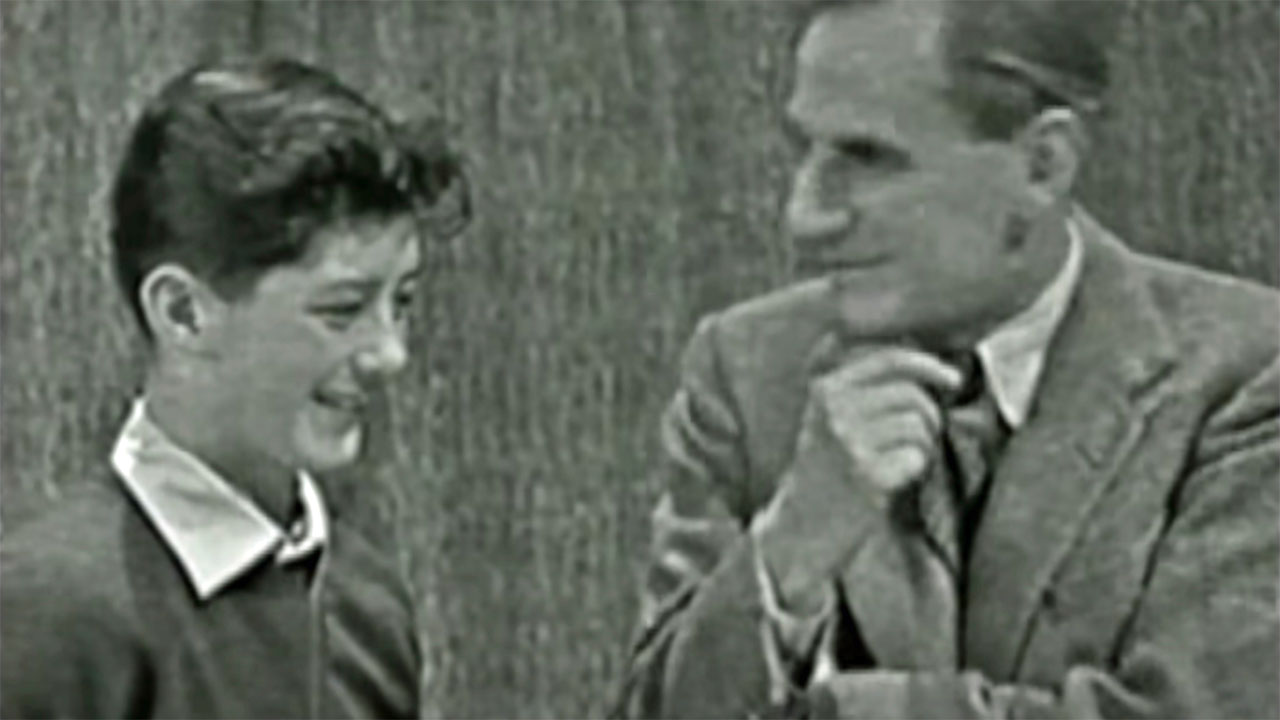Launched in 1952, the kid's TV show All Your Own gave the nation's children a rare opportunity to display their skills. Hosted by Huw Weldon – later Sir Huw, Director General of the BBC – a typical show might feature a young girl demonstrating the art of Japanese tea-making, or a boy who'd somehow constructed a full-sized harpsichord from matchsticks.
On April 6, 1957, the show featured an up-and-coming skiffle group, and while the musical careers of three of the players may have been consigned to history's landfill, the identity of the fourth is carved into rock's Mount Rushmore: It's future Yardbirds and Led Zeppelin guitarist Jimmy Page.
After Weldon's typically stiff introduction, the band play a slightly nervous Mama Don't Want To Skiffle Anymore, before Weldon steps in, mutes a cymbal, and starts to interview the band members.
He begins with drummer David Housego (who, five years later, would join Page, Mick Jagger and Keith Richards in a contingent of London musicians travelling to Manchester for the influential American Folk Blues Festival). And then he turns to the young James Page.
“What are you going to do when you leave school?" Weldon asks. "Take up skiffle?”
“No, I want to do biological research,” Page replies, looking more angelic that any future Aleister Crowley devotee probably should. "Cancer, if it hasn't been discovered by then."
“You mean be a Doctor?”
“No, I haven’t got enough brains for that, I don’t think,” says Page, before shuffling nervously in the manner of all British people asked to speak on camera in the 1950s.
After more awkward chat, the band play their second number, a cover of Lead Belly's Cottonfields, a song Bob Dylan credited as changing his life and later made famous by The Beach Boys and Creedence Clearwater Revival. And it's as ragged as you might expect from a group of Epsom schoolboys playing a song written about plantation life in the antebellum South.
Years later, Page would sit down with artist Jeff Koons at New York’s 92nd Street Y, while on promotional duty for his autobiography, and look back at what he called a "very embarrassing" performance.
"I was quite a shy kid," explained Page. "I'm still quite a shy person. I'm quite introverted, so under that sort of scrutiny all manner of things were said and mistakes were probably played as I as I carried on through it... but it's got a charm about it.
“When you’ve had a whole lifetime full of music, there are certain things that sort of come up and haunt you, and that is one of them."

